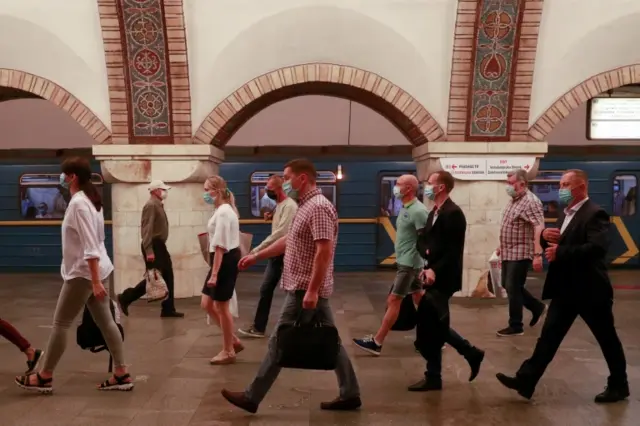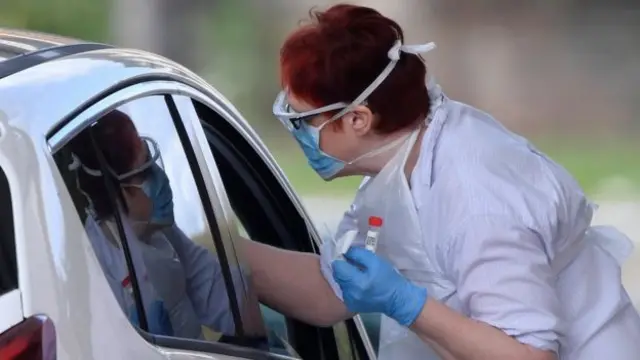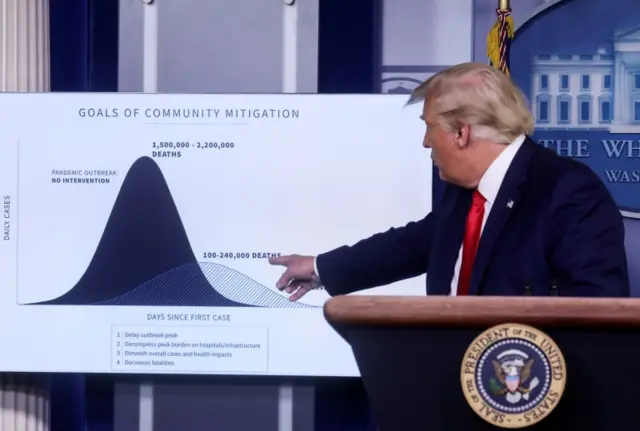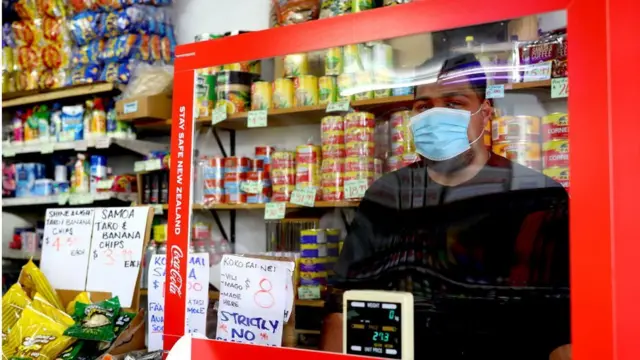New infections records in Ukraine and Czech Republicpublished at 07:38 BST 17 September 2020
 Image source, Reuters
Image source, ReutersBoth Ukraine and the Czech Republic have set new records in their daily rise in infections, reports Reuters news agency.
Ukraine has reported 3,584 new coronavirus infections, the national security council said on Thursday. That brings the country to a total of 166,244 cases, with 3,400 deaths.
Meanwhile for the first time the Czech Republic counted more than 2,000 new cases in a 24-hour period - it reported 2,139 new infections on Wednesday, up from a previous record of 1,675.




